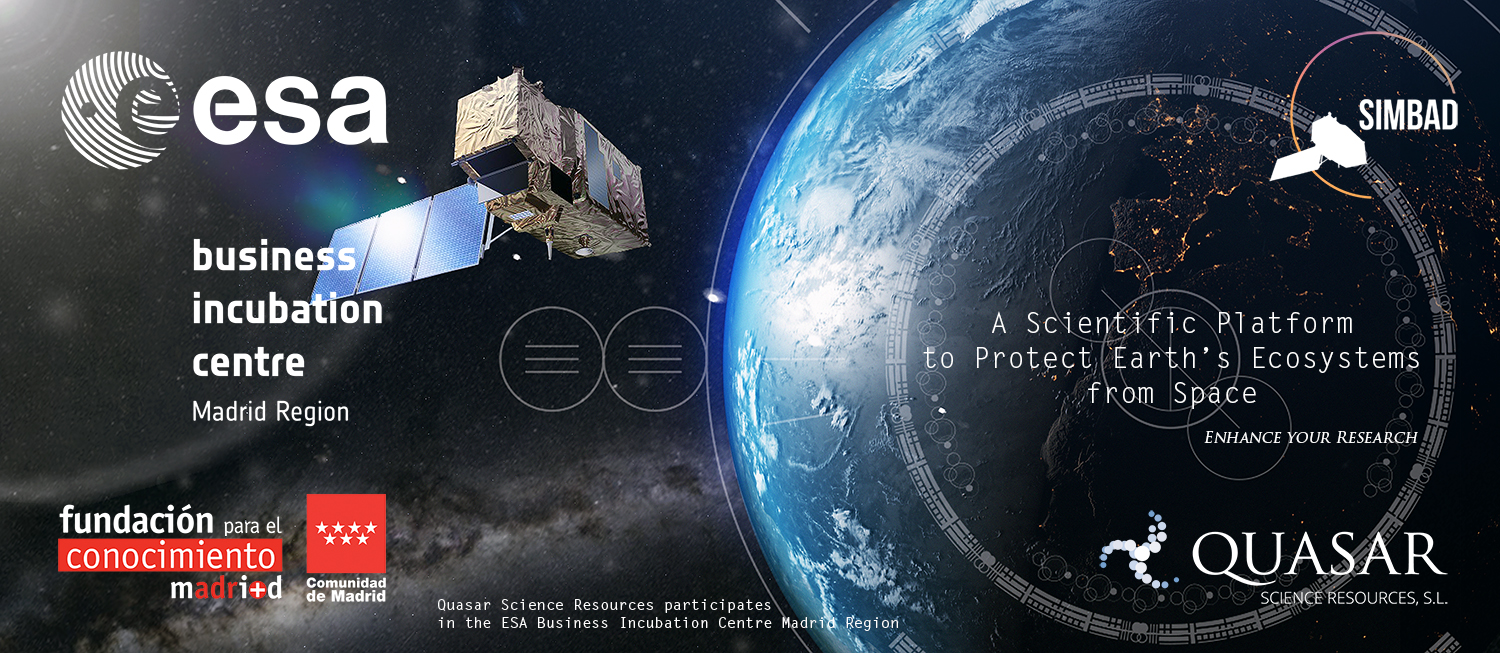On April 2018 Quasar Science Resources was accepted into the ESA Business Incubation Centre (BIC) Madrid Region, managed by Fundación madri+d (Madrimasd Knowledge Foundation) and supported by the Regional Government of Madrid.

Fundación madri+d is a reference centre for science and technology in the Region of Madrid with extensive experience of 20 years in the creation and consolidation of science and technology-based startups.
Earth Observation (EO) applications and services are rapidly increasing. Sentinel missions are being developed by the European Space Agency (ESA) for the Copernicus Programme, a European effort to monitor the Earth and its different habitats. Each Sentinel mission is based on a constellation of two satellites to fulfil revisit and coverage requirements, providing robust datasets for Copernicus Services. These missions (from Sentinel-1 through Sentinel-6) carry a range of technologies, such as radar and multi-spectral imaging instruments for land, ocean and atmospheric monitoring; and are providing massive EO data collections on a global scale, and the data generation rate is rapidly increasing. In addition, advances in Information Technology (IT) infrastructures have enabled new ways of accessing and exploiting EO data. This rapid evolution provides an opportunity for added value service providers of EO applications and services. Quasar Science Resources intends to take advantage of this opportunity and develop custom services based on Sentinel data.
One such problem is the mapping and monitoring of Posidonia Oceanica meadows in the Mediterranean Sea. The Posidonia is one of the main sources of oxygen in the sea and it is considered to be a good bioindicator of the quality of the water.
Our solution to map and monitor the P. Oceanica meadows in the Mediterranean Sea is called SIMBAD (Sentinel Imagery MultiBand Analysis and Dissemination). SIMBAD will make use of Sentinel-2 images to provide customized services specifically designed to map these meadows. The project will also combine satellite and drone imagery and will implement machine learning algorithms to detect these meadows in order to monitor their evolution.

Quasar proposed in April 2018 SIMBAD for incubation by the ESA BIC Madrid region and was accepted. The project officially stared in October 2018 and will run for two years.
Read more about SIMBAD,


